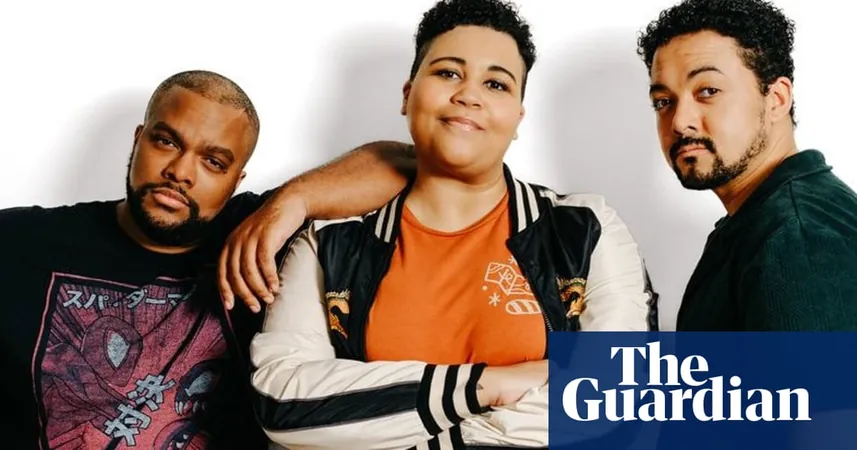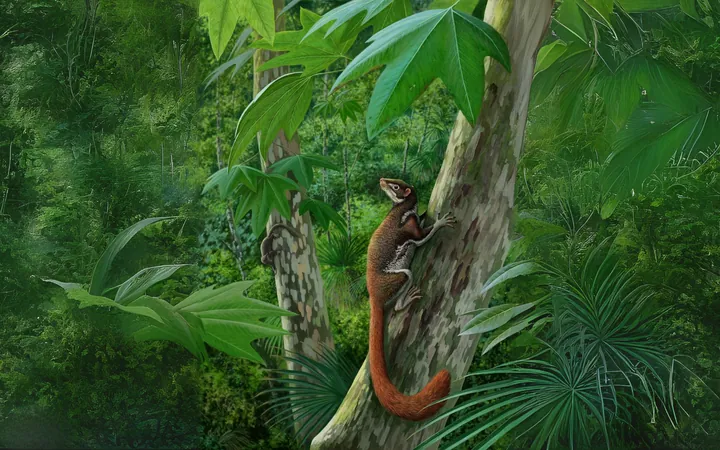
Orcs, Elves, and Culture Wars: The Rightwing Backlash Against Diversity in Dungeons & Dragons
2025-01-01
Author: Ken Lee
Introduction
In recent years, the iconic role-playing game Dungeons & Dragons (D&D) has been at the epicenter of a cultural clash, reflecting broader societal tensions around diversity, inclusion, and the legacy of old stereotypes. Jeremy Cobb, a 32-year-old actor and professional Dungeon Master, underscores the essence of D&D as a refuge for nonconformists – those who opted out of mainstream activities like sports in favor of imaginative, collaborative storytelling.
The Rightwing Backlash
However, the game’s growing efforts to reinvent its portrayal of fantastical races have sparked considerable controversy, culminating in a rightwing backlash. The most recent uproar was ignited by a pivotal change in the terminologies used within the game. Wizards of the Coast (WOTC), the publisher of D&D, announced that they would be shifting from the term "races" to "species" in the redesigned rulebook. This change reflects a conscious effort to dissipate the detrimental historical connotations associated with the word "race," which has been linked to real-world prejudices.
Public Reaction
Critics, however, have lambasted these changes, branding them as the epitome of "wokeism" and expressing concerns that the game’s fun and fast-paced nature may suffer as a result. Social media has seen an influx of discontent, with some players asserting that these changes strip D&D of its traditional allure and depth.
Elon Musk's Involvement
Notably, the foreword to a commemorative book for D&D's 50th anniversary, titled *The Making of Original D&D*, highlighted terms like "derogatory language" and "cultural appropriation," which prompted responses from notable figures, including Elon Musk, who urged the parent company Hasbro to "burn in hell" in reaction to the perceived sensitivity of the updated content.
Divided Opinions Among Players
The debate has illuminated a divide among players. Timothy Linward, writing for Wargamer, acknowledged that the game's earlier depiction of orcs as simplistic villains perpetuated harmful stereotypes, but he argued that such tropes are fundamental to maintaining the game's fantasy genre. He claimed that D&D's very framework relies on clear markers of good versus evil, leaving little room for complicated narratives of cultural nuance or inter-group harmony.
Positive Adjustments
Meanwhile, Cobb views the adjustments positively, heralding them as a move toward greater customization and approachability for newcomers to the game. He identifies two primary sources for the current "culture war" within D&D: the discomfort of veteran players regarding the influx of diverse newer participants and ongoing tensions between WOTC and its fanbase, particularly following prior controversial business decisions.
The Perspective of Advocacy
Despite the backlash, many advocates for inclusive gaming see potential in these reforms. Cobb, who prefers the term "lineage" over the new label "species," argues that while brutal characters can occupy the game’s narrative, equating such brutal behavior with entire groups based on race can inadvertently reinforce real-world racial stereotypes.
Nostalgia vs. Change
As fans debate the merit of the new rules, Cobb emphasizes that players are not obligated to abandon previous editions of the game. The uproar often stems from a fear of change and an unwillingness to adapt. He points out that the mentality surrounding this backlash often echoes a possessiveness of nostalgia, with players reacting defensively over criticisms of a beloved hobby.
Greater Cultural Context
Dungeons & Dragons is not the only franchise to embrace inclusivity amid cultural contention. In 2021, Hasbro introduced a gender-neutral rebranding of Mr. Potato Head to foster feelings of welcome and equality among consumers, and Ms. Monopoly was touted as a revolutionary game where women financially outperform men but received criticism for its marketing beyond the game mechanics.
Conclusion
As the landscape of gaming and storytelling continues to evolve, the conversation surrounding diversity in D&D exemplifies a microcosm of the larger culture wars. It raises critical questions about identity, representation, and the enduring legacy of stereotypes in fantasy storytelling. Whether the backlash will galvanize a push for change or create a permanent division among fans remains to be seen. The future of D&D, and similar franchises, will likely hinge on how they navigate these complex societal themes while captivating their diverse audience.



 Brasil (PT)
Brasil (PT)
 Canada (EN)
Canada (EN)
 Chile (ES)
Chile (ES)
 Česko (CS)
Česko (CS)
 대한민국 (KO)
대한민국 (KO)
 España (ES)
España (ES)
 France (FR)
France (FR)
 Hong Kong (EN)
Hong Kong (EN)
 Italia (IT)
Italia (IT)
 日本 (JA)
日本 (JA)
 Magyarország (HU)
Magyarország (HU)
 Norge (NO)
Norge (NO)
 Polska (PL)
Polska (PL)
 Schweiz (DE)
Schweiz (DE)
 Singapore (EN)
Singapore (EN)
 Sverige (SV)
Sverige (SV)
 Suomi (FI)
Suomi (FI)
 Türkiye (TR)
Türkiye (TR)
 الإمارات العربية المتحدة (AR)
الإمارات العربية المتحدة (AR)